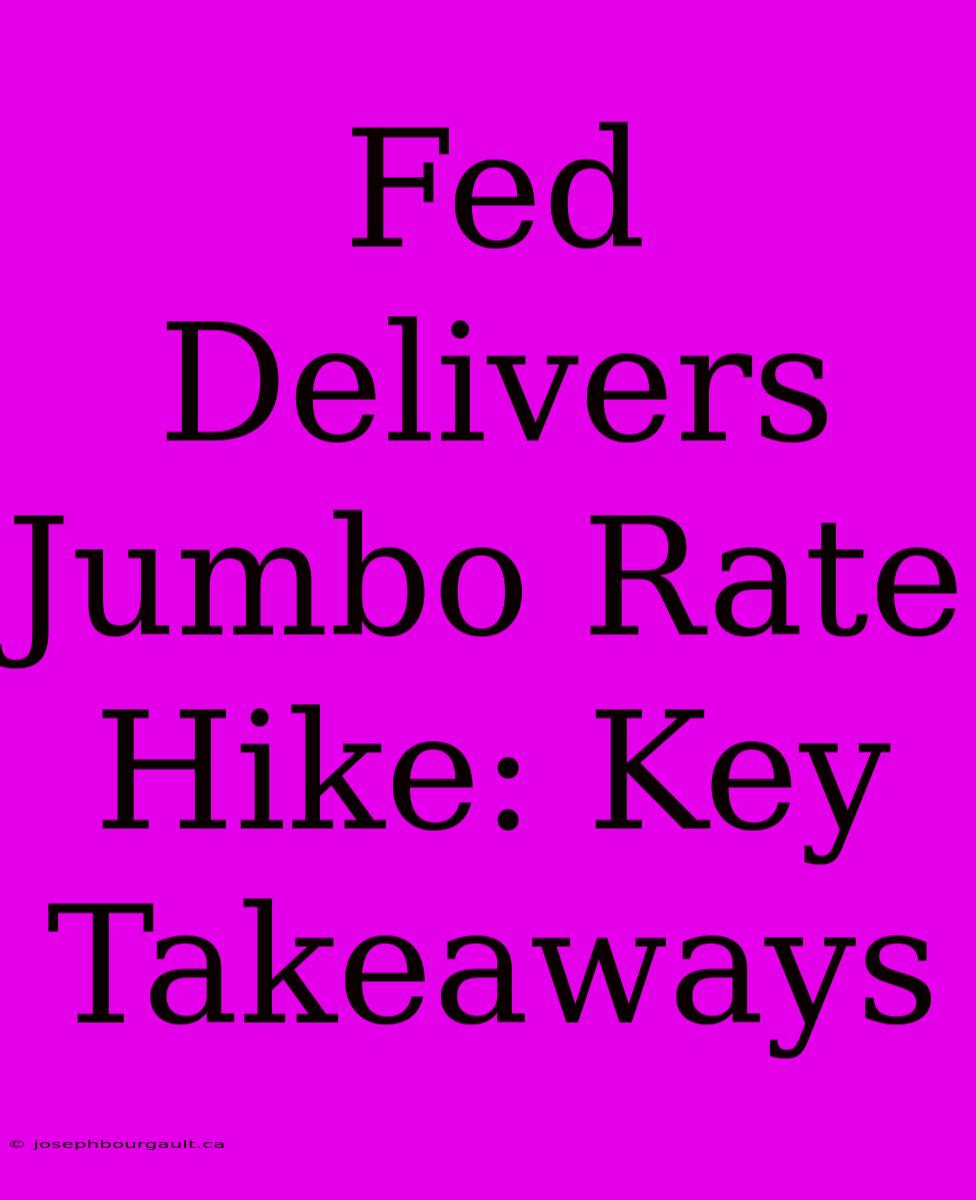Fed Delivers Jumbo Rate Hike: Key Takeaways
The Federal Reserve delivered a historic rate hike on Wednesday, raising interest rates by 75 basis points for the second consecutive meeting, bringing the federal funds rate to a range of 3.00% to 3.25%. This aggressive move marks the most significant tightening of monetary policy since the 1980s, underscoring the Fed's determination to combat surging inflation.
Here are the key takeaways from the Fed's latest decision:
1. Inflation Remains the Top Priority
Inflation remains stubbornly high, with the Fed's preferred measure, the core personal consumption expenditures (PCE) price index, rising to 4.8% in June. While this marks a slight slowdown from May's 4.9% rate, it’s still far above the Fed's 2% target.
The Fed's policy statement explicitly acknowledged this persistent inflation: "Inflation remains elevated, reflecting supply and demand imbalances related to the pandemic, higher energy prices, and broader price pressures."
2. The Fed Signals More Hikes to Come
The Fed's dot plot, which forecasts individual policymakers' expectations for future interest rates, indicates that the central bank expects to raise rates further in the coming months. The median projection suggests the federal funds rate will be in the range of 3.75% to 4.00% by the end of the year, with an additional 25 basis point hike possible in September.
This signals that the Fed is prepared to continue aggressively tightening policy until inflation shows clear signs of easing.
3. Economic Outlook Remains Uncertain
The Fed's outlook for economic growth remains uncertain, with risks tilted towards a potential recession.
While the recent strong jobs report suggests a resilient labor market, rising prices and higher interest rates are dampening consumer spending. The Fed acknowledged these challenges in its statement, noting that "recent indicators point to modest growth in spending and production."
4. The Fed's Balancing Act
The Fed faces a difficult balancing act in attempting to tame inflation without triggering a recession. The latest jumbo rate hike demonstrates their willingness to act decisively, but the impact of aggressive tightening on the economy is yet to be fully realized.
In the coming months, we can expect to see a continued focus on inflation data as the Fed navigates this challenging environment. The Fed’s decisions will have a significant impact on the economy, influencing everything from housing prices to stock markets and potentially affecting consumer confidence and business investment.
This is a crucial moment in the fight against inflation. Stay tuned for further developments as the Fed continues to navigate the economic landscape.

